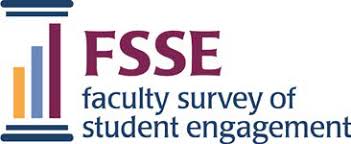Given the almost universal impact of COVID-19 on higher education institutions, we decided to descriptively see how response rates differed between last year (2019) and this year (2020) for the Faculty Survey of Student Engagement (FSSE). FSSE captures information from instructional staff at four-year colleges and universities about their experiences teaching, interacting with students, and filling many other roles.
Faculty from 120 institutions from the U.S. and Canada responded to the survey in 2019, yielding 16,190 responses. The average response rate for institutions was 42% with a range from 14% to 82%. Of all the faculty that received an invitation to participate 36% responded. After some institutions withdrew from the administration in 2020, 94 participated yielding a total of 13,346 responses.
The average institution response rate was slightly lower in 2020 at 39% while the minimum response rate of 18% and the maximum at 86% appeared greater than in 2019. However, the faculty response rate fell slightly to 33%. In both instances, the survey ran from March to May, but in 2020 the survey was extended by a week to afford faculty more time to respond in light of COVID.
Table 1. FSSE Response Rates by Year
| Institutions | Responses | Inst. Avg. | Min. | Max | Faculty Avg. | |
| 2019 | 120 | 16,190 | 42% | 14% | 82% | 36% |
| 2020 | 94 | 13,346 | 39% | 18% | 86% | 33% |
The response rate discrepancies may be something to reflect upon. The 3% decrease between the two years in both institutional and faculty average response rates may be negligible, but it may also prompt a conversation about faculty environments. For example, in 2020, did an increase in time spent on technology platforms prompt faculty to more frequently respond at some institutions, or did faculty feel overwhelmed by their roles leading to lower overall response rates?
Regardless, response rates only paint one sliver of the picture when looking at the differences between 2019 and 2020. Response rates cannot tell us that the substantive nature of the responses changed as a result of COVID-19. For example, faculty may have spent more time preparing for teaching in 2020 than 2019 (Item 7), but this could be due to COVID-19 or due to other influences (e.g., stress, family issues, role changes, etc.). Additional analyses may help explain some changes in patterns. We'll continue to investigate the data and hope our participating institutions will do the same (and share what they're finding)!
For more information about recent publications or webinars on COVID be sure to follow us on Twitter @NSSEsurvey.


